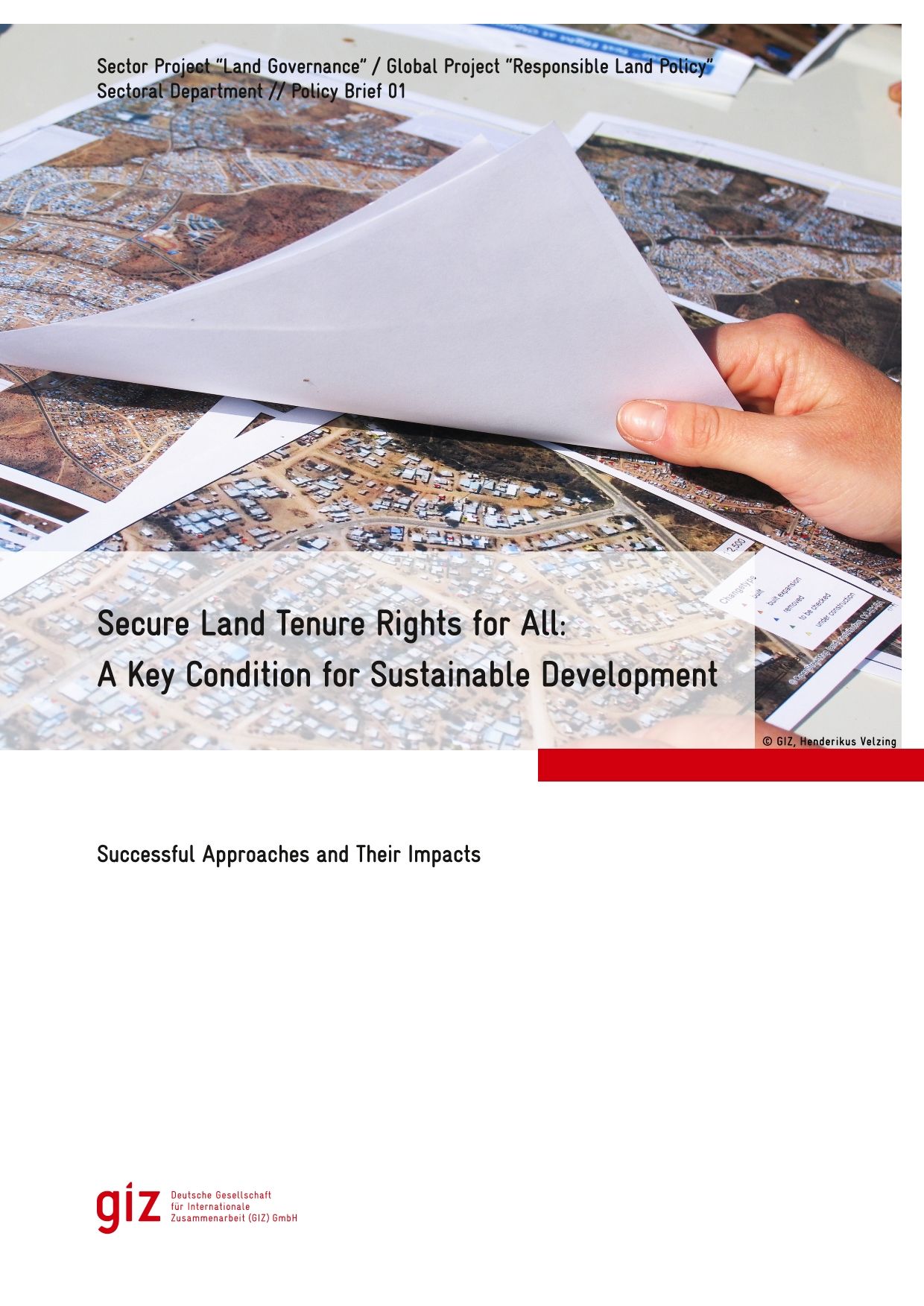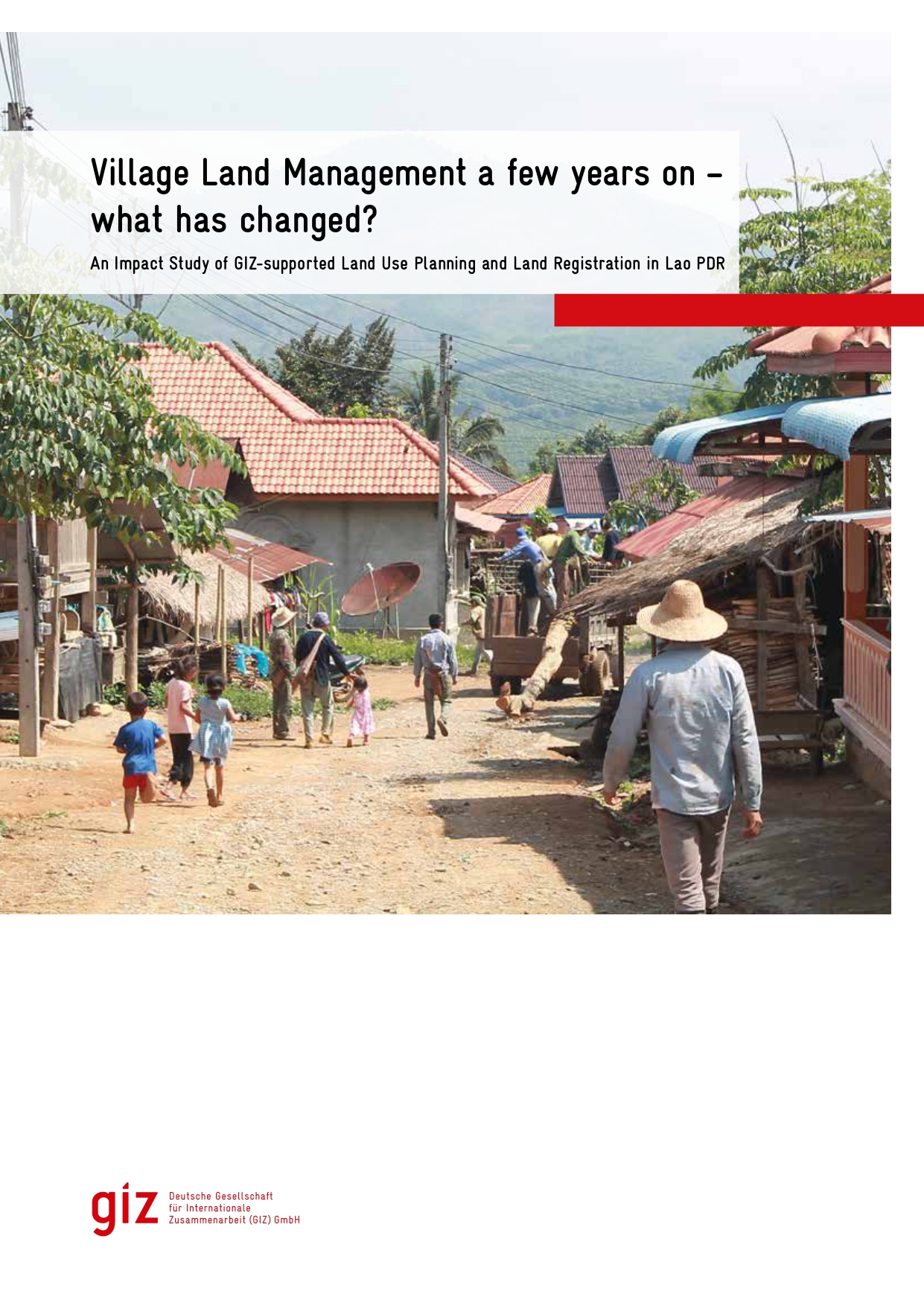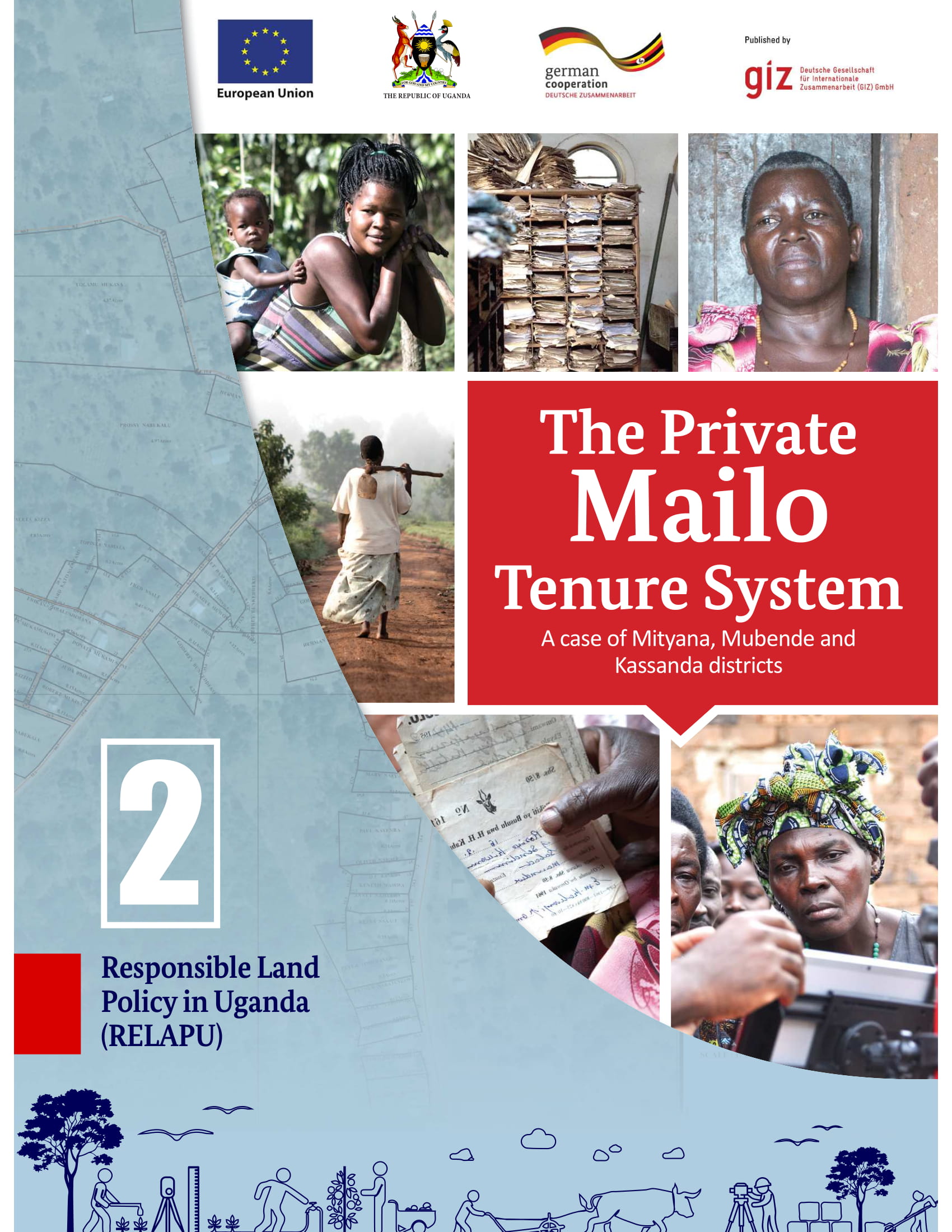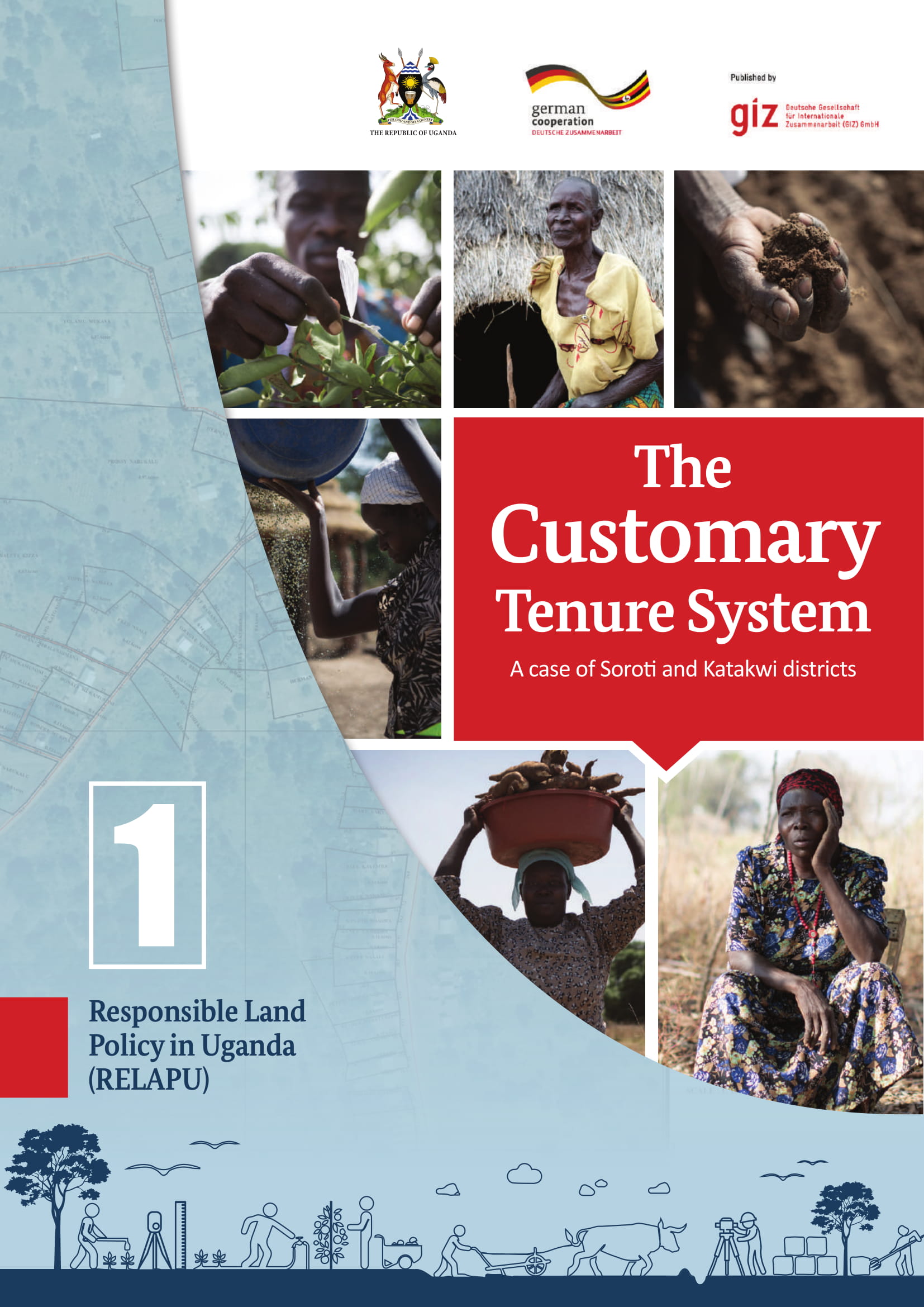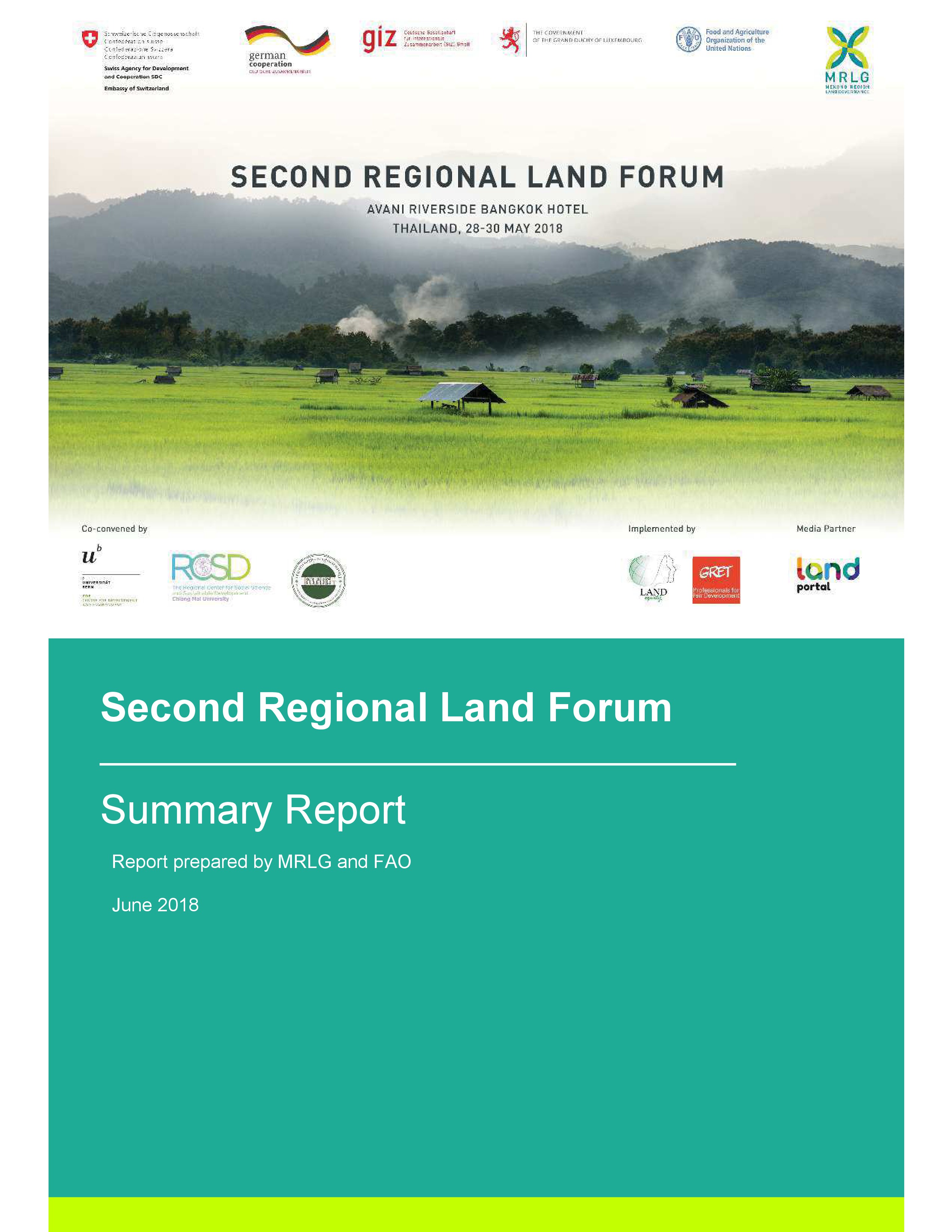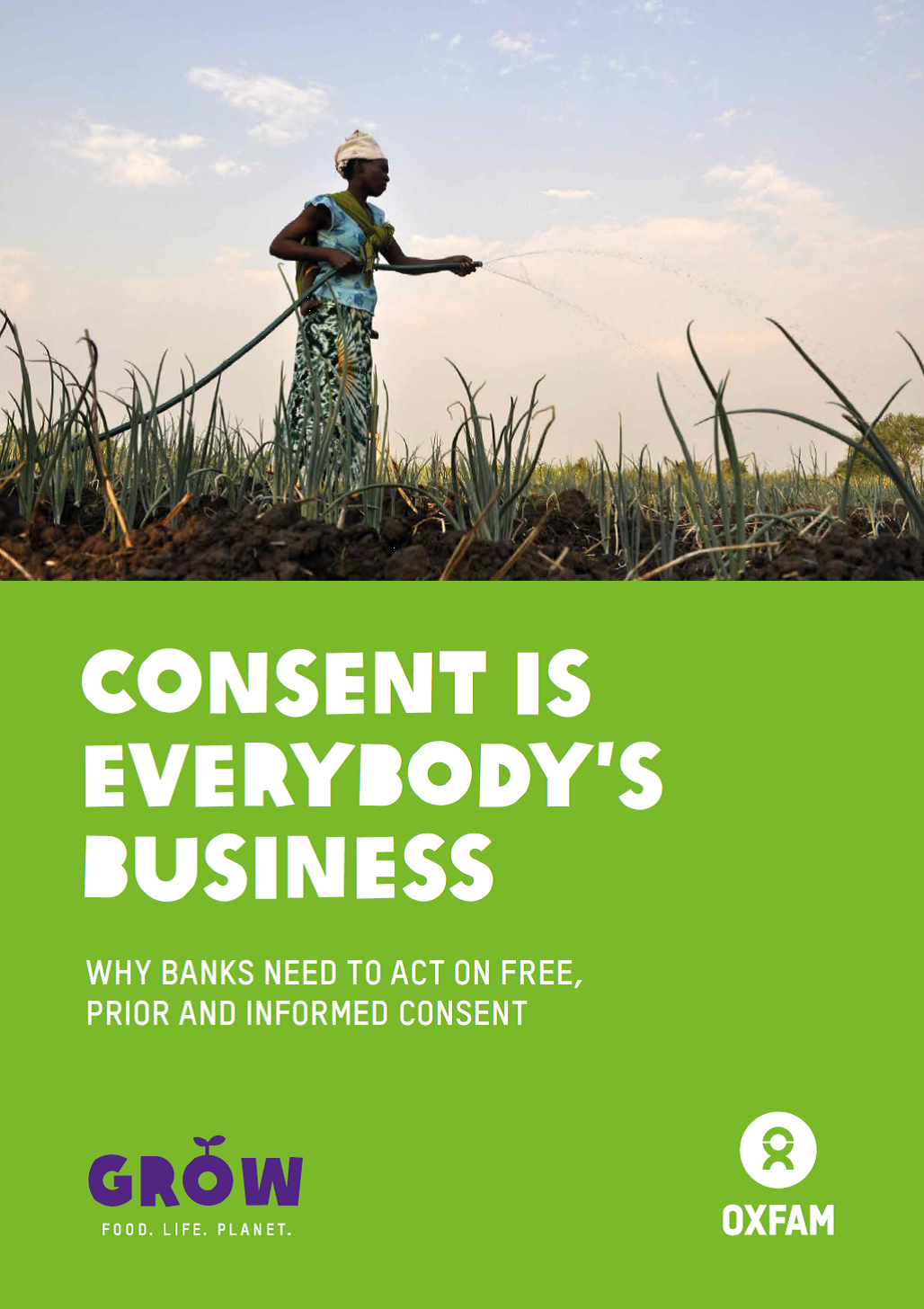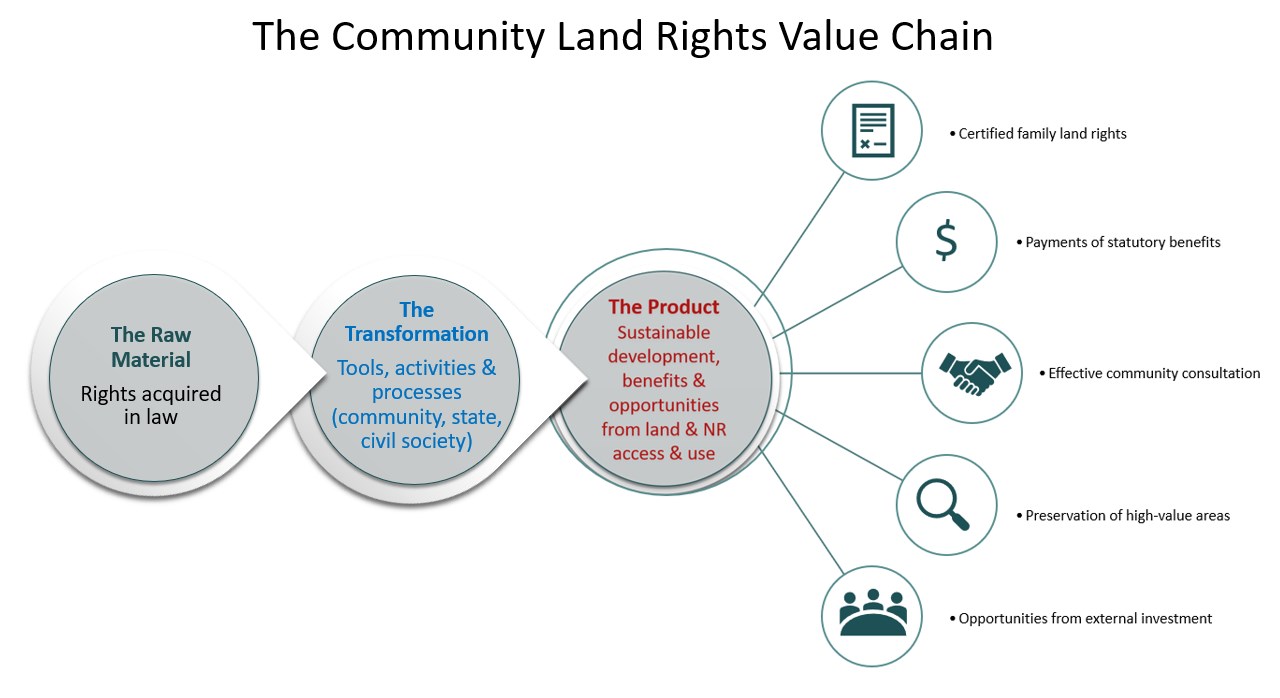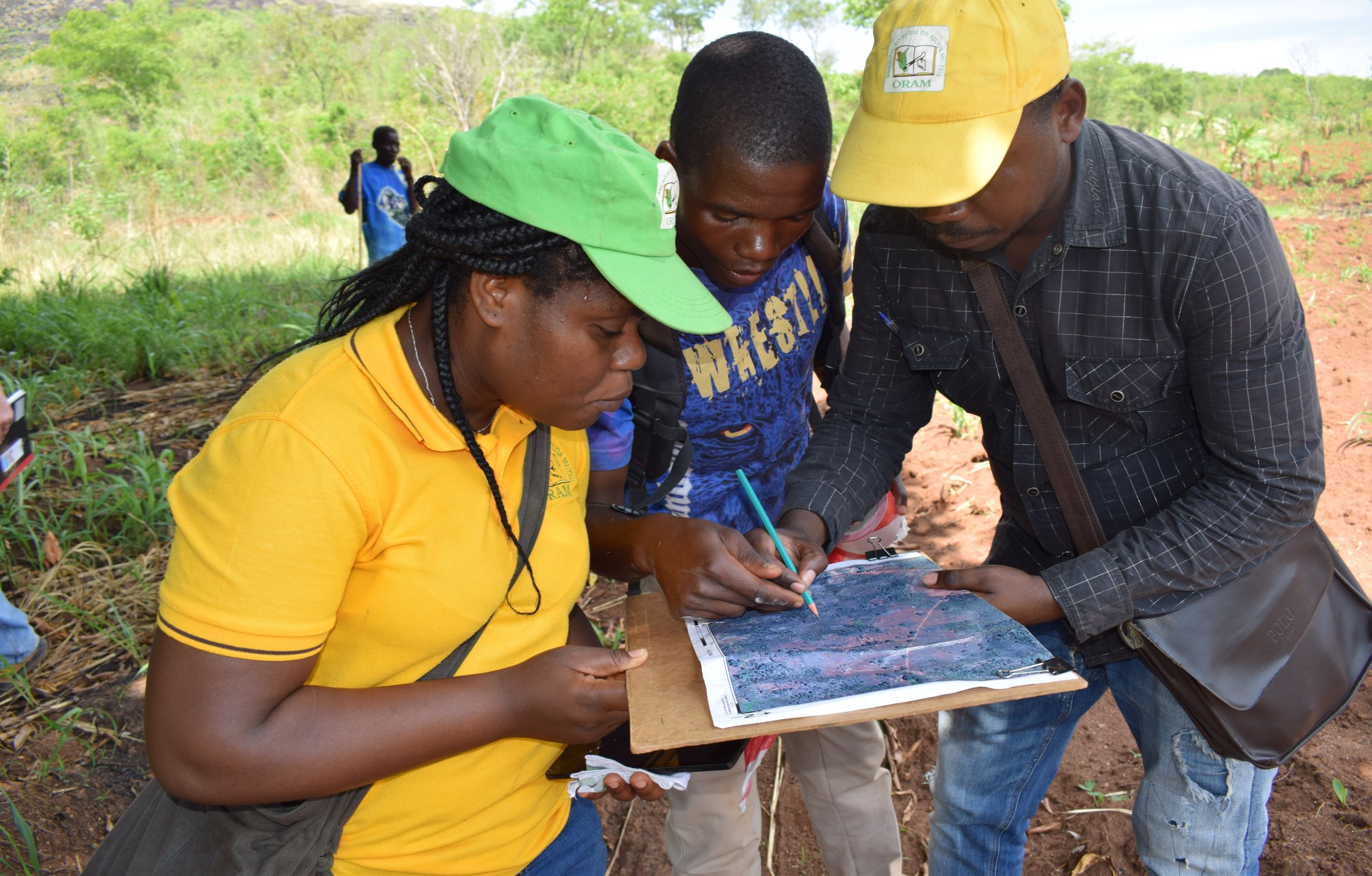Secure Land Tenure Rights for All: Key Condition for Sustainable Development
The aim of this policy paper is to present successful approaches to secure land tenure rights in rural and urban areas. To support future programmatic decisions by the Federal Ministry for Economic Cooperation and Development (BMZ), this paper focusses especially on impacts and good practices. It discusses examples from the German technical cooperation but also includes good practices and impacts achieved by other development partners.

